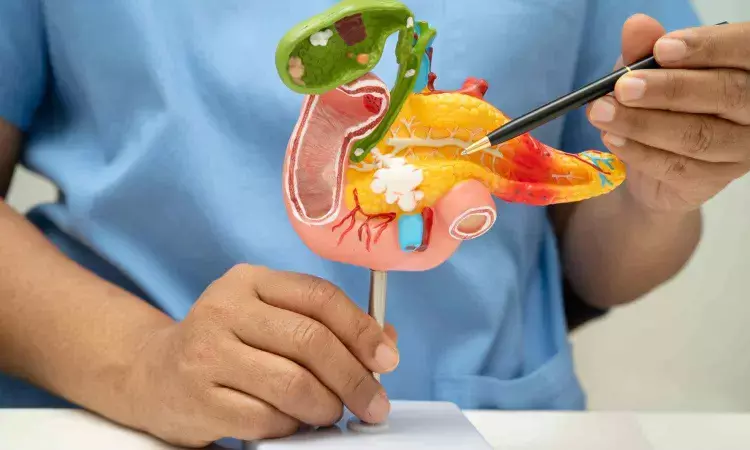- Home
- Medical news & Guidelines
- Anesthesiology
- Cardiology and CTVS
- Critical Care
- Dentistry
- Dermatology
- Diabetes and Endocrinology
- ENT
- Gastroenterology
- Medicine
- Nephrology
- Neurology
- Obstretics-Gynaecology
- Oncology
- Ophthalmology
- Orthopaedics
- Pediatrics-Neonatology
- Psychiatry
- Pulmonology
- Radiology
- Surgery
- Urology
- Laboratory Medicine
- Diet
- Nursing
- Paramedical
- Physiotherapy
- Health news
- Fact Check
- Bone Health Fact Check
- Brain Health Fact Check
- Cancer Related Fact Check
- Child Care Fact Check
- Dental and oral health fact check
- Diabetes and metabolic health fact check
- Diet and Nutrition Fact Check
- Eye and ENT Care Fact Check
- Fitness fact check
- Gut health fact check
- Heart health fact check
- Kidney health fact check
- Medical education fact check
- Men's health fact check
- Respiratory fact check
- Skin and hair care fact check
- Vaccine and Immunization fact check
- Women's health fact check
- AYUSH
- State News
- Andaman and Nicobar Islands
- Andhra Pradesh
- Arunachal Pradesh
- Assam
- Bihar
- Chandigarh
- Chattisgarh
- Dadra and Nagar Haveli
- Daman and Diu
- Delhi
- Goa
- Gujarat
- Haryana
- Himachal Pradesh
- Jammu & Kashmir
- Jharkhand
- Karnataka
- Kerala
- Ladakh
- Lakshadweep
- Madhya Pradesh
- Maharashtra
- Manipur
- Meghalaya
- Mizoram
- Nagaland
- Odisha
- Puducherry
- Punjab
- Rajasthan
- Sikkim
- Tamil Nadu
- Telangana
- Tripura
- Uttar Pradesh
- Uttrakhand
- West Bengal
- Medical Education
- Industry
MDW Outperforms CRP and WBC in Early Detection of Complications after pancreatic surgery: Study

A study published in BMC Surgery has revealed that Monocyte Distribution Width (MDW) offers earlier and more accurate detection of postoperative complications compared to traditional inflammatory markers such as C-reactive protein (CRP) and white blood cell count (WBC). Researchers found that a significant rise in MDW by the third postoperative day could serve as an early warning signal for serious complications, including clinically relevant postoperative pancreatic fistula (CR-POPF) and anastomotic leaks.
According to the authors, MDW is derived from standard complete blood count tests, making it a cost-effective and easily accessible marker for routine postoperative monitoring. Its ability to detect inflammatory responses earlier than CRP and WBC gives it a potential edge in guiding clinical decisions during the critical recovery phase following pancreatic surgery. The study emphasized that early detection is key for improving patient outcomes, as timely interventions can prevent the progression of complications and reduce hospital stays.
The researchers concluded that integrating MDW into standard postoperative care could enhance real-time monitoring and risk assessment after major abdominal surgeries. They suggested that larger, multicenter studies should validate these findings and establish precise clinical cut-off values for MDW in surgical patients. Overall, the study supports the inclusion of MDW as a reliable adjunct to conventional markers, providing surgeons with a practical and efficient tool to detect complications early and improve surgical outcomes.
Reference:
Kobayashi, T., Nakamura, H., & Saito, M. (2025). Monocyte distribution width as an early predictor of postoperative complications after pancreatic surgery: A comparative study with CRP and WBC. BMC Surgery, 25(1), 3272. https://doi.org/10.1186/s12893-025-03272-2
Dr. Shravani Dali has completed her BDS from Pravara institute of medical sciences, loni. Following which she extensively worked in the healthcare sector for 2+ years. She has been actively involved in writing blogs in field of health and wellness. Currently she is pursuing her Masters of public health-health administration from Tata institute of social sciences. She can be contacted at editorial@medicaldialogues.in.
Dr Kamal Kant Kohli-MBBS, DTCD- a chest specialist with more than 30 years of practice and a flair for writing clinical articles, Dr Kamal Kant Kohli joined Medical Dialogues as a Chief Editor of Medical News. Besides writing articles, as an editor, he proofreads and verifies all the medical content published on Medical Dialogues including those coming from journals, studies,medical conferences,guidelines etc. Email: drkohli@medicaldialogues.in. Contact no. 011-43720751


